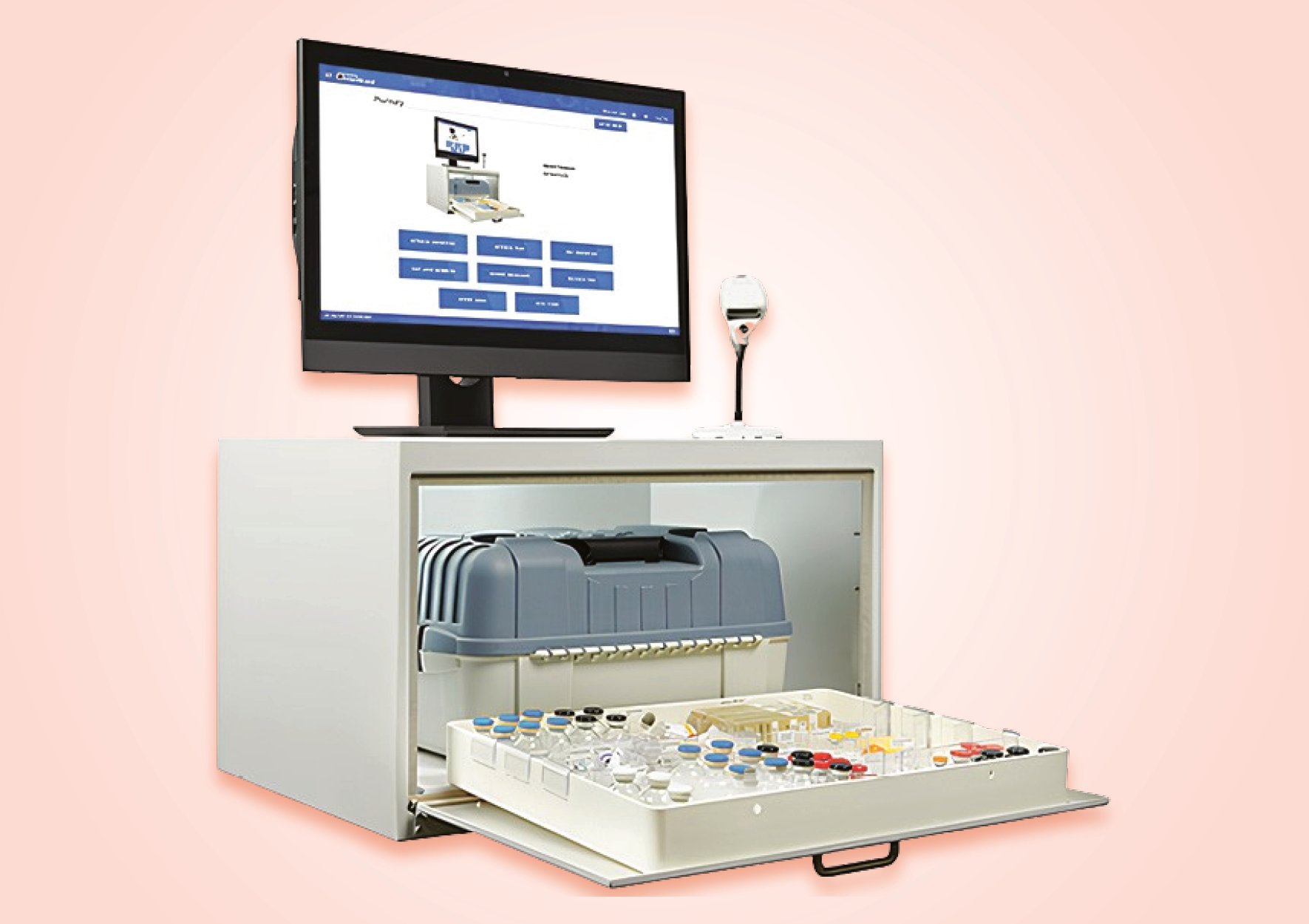- Show Menu
- Contact Us
- FAQs
- Reader Service
- Survey Data
- Survey Winners
- Testimonials
- Upcoming Events
- Webinars
- White Papers
IntrinsiQ’s IntelliDose
Cooper Cancer Institute (CCI) is part of Cooper University Hospital, a 542-bed tertiary care, teaching hospital located in Camden, New Jersey. It provides cancer care at three outpatient infusion centers located throughout southern New Jersey, and offers patients access to advanced diagnostic and treatment technologies, comprehensive support services, and groundbreaking cancer clinical research trials—making it one of the busiest cancer treatment centers in the region.
In 2008, the CCI outpatient pharmacy compounded approximately 23,000 medications for infusion at its three busy infusion sites, nearly half of which were chemotherapy orders.
Ten years ago, CCI treated a quarter of the patients we see today, but even with fewer patients, our manual systems were still challenged by keeping up-to-date records and ensuring patient safety. When a patient visited one site, there was no efficient way to track his or her record of treatment across the other sites.
Like most facilities of that time, our practice relied on handwritten paper records for drug orders, making it difficult to manage, track, and share critical patient information from site to site. Patient safety and practice efficiency were growing concerns. We knew we needed a centralized, electronic solution that would write and electronically check dosing, as well as provide standardized drug therapy and treatment plans. We wanted a system that would help us grow our patient volumes, staff, and facilities.
Moving Toward a Paperless Practice
In 2003, we found IntelliDose, an oncology-specific computerized physician order entry (CPOE) system. After close scrutiny of the solution’s capabilities and an evaluation of how the system would fit into our existing practice workflows, we knew we had the right fit. IntelliDose gives us the ability to automate chemotherapy orders, crosscheck drug interactions, calculate dosing, and verify pharmacy lab results. It also allows us to track complex treatments, cumulative doses, supporting medications, and patient history.
All CCI outpatient infusion sites have access to the centrally based patient information system, and with the planned upgrade to the 3.8 version of IntelliDose, Cooper Hospital inpatient staff will also have access to this information should patients require hospital admission, procedures, or emergency care. Most importantly, IntelliDose provides critical safeguards throughout the entire order process by providing standardized treatment guidelines that can be obtained through the program’s menu system.
Implementing the System
The first part of the implementation process involved choosing supportive infrastructure hardware—such as servers and workstations—to replace pen and paper. An IntelliDose representative came on-site and made specific recommendations to fit our needs. Our initial start up involved acquiring a server and two PCs. With our growth, we have upgraded the server and added ten additional PCs throughout all sites. Our next step will be to add wireless laptops in the infusion rooms.
Once the hardware was purchased and installed, we began our rollout. An IntelliDose oncology nurse came on-site to train our team, and after only two and a half days, we were creating treatment templates and processing orders.
We took our time integrating patients into the system, enrolling new patients as they received their chemotherapy treatments. The learning curve progressed more quickly than we expected, and within two months, IntelliDose had become the sole chemotherapy writing software for every new cancer patient treated at our facilities.
Better Patient Care, Better Practice Efficiency
Today, when a patient needs chemotherapy the physician signs off on order sets, which are then sent to the pharmacy for final review and processing. Once the orders have been thoroughly reviewed and approved, CCI pharmacists print labels (generated automatically from the order set) for the patient IV bags and syringes. The easy-to-read labels eliminate the potential for confusion when multiple bags and pre-filled syringes are picked up by our infusion nurses and administered to patients.
Another benefit of IntelliDose is its reporting capability. Patients are coded in the system based on their diagnosis and staging, so when a new clinical trial becomes available, our team can easily identify which patients are appropriate to consider for enrollment. IntelliDose also allows users to analyze orders based on diagnosis, staging, medication, and treatment plan to determine physician ordering patterns and optimize contracting and pricing benefits.
Cooper Cancer Institute is well on its way to being a paperless practice. We now use IntelliDose to receive and process more than 90% of our orders electronically, which has increased our practice efficiency ten-fold. By eliminating the potential for error or misinterpretation from handwritten orders and by having electronic checks, we can ensure patients are treated in the safest possible way.
Art Lederman, RPh, MBA, is the pharmacy supervisor at the Cooper Cancer Institute, and has been with Cooper University Hospital for 26 years. He earned his pharmacy degree from the Philadelphia College of Pharmacy and Science and an MBA in pharmaceutical marketing from Saint Joseph’s University in Philadelphia.
Like what you've read? Please log in or create a free account to enjoy more of what www.pppmag.com has to offer.








